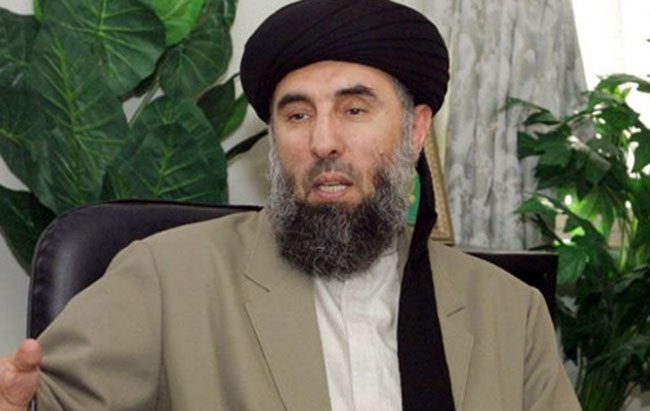Within the escalated violence and bloodshed, peace talks between the Afghan government and Hezb-e-Islami Afghanistan led by Gulbuddin Hekmatyar (HIA) come under discussion. Earlier, the complete withdrawal of foreign forces was included in the preconditions set by Gulbuddin Hakmetyar, which was refused by the Afghan government. However, it is said that he has stepped back from this demand and preparations are underway for a final declaration regarding the peace deal.
Peace talks have been a top priority for Afghan government and the door for negotiation was and will be open for warring parties – it is what Afghan officials have articulated constantly and urged the militants to cease spilling the blood of innocent civilians. The state has made great sacrifices for brining warring factions, mainly the Taliban to negotiating table, but the talks came to a stalemate in one way or another. In other words, whistle-blowers and foul players played their destructive role and created a split between Afghan government and the Taliban (that formed the bulk of the mala fide players).
Following the futility of peace talks with the Taliban, despite the government’s persistent efforts, HIA has declared preparation for holding talks. The group has conducted some widely publicized attacks during the past few years. HIA spokesman Haroon Zarghoon claimed responsibility for a Vehicle-Borne Improvised Explosive Device (VBIED) attack in Kabul on July 07, 2015 against a NATO convoy. HIA also claimed responsibility for a deadly insider attack on April 2015 in Nangarhar Province in which a US soldier was killed. On February 10, 2014, the group carried out an attack which killed at least two US civilians and wounded two other Americans and seven Afghan nationals and on May 16, 2013 suicide VBIED attack in Kabul, which destroyed a US armored SUV and killed two US soldiers, four US civilian contractors, eight Afghans, including two children, and wounded at least 37 others. The attack marked the deadliest incident against US personnel in Kabul in 2013.
Afghan nation also sustained heavy casualties in suicide bombings and terrorist attacks carried out by militant fighters, including the Taliban, self-styled Islamic State (IS) group, HIA, Haqqani network, etc. Recently, the Taliban have intensified their attacks and Haibatullah Akhundzada, the Taliban’s ideologue leader, follows his predecessor’s footstep through continuing the Omari Operation declared by him. Last week, several suicide bombings took place in Kabul which left dozens of combatants and non-combatants dead and wounded.
It is believed that making peace with HIG will not ensure the rights and freedoms of Afghan nation. In another item, militancy will not be diminished in the country through holding talks with one insurgent group while others continue violence and bloodshed. After all, it is believed that there is a sense of mistrust between Afghan nation and HIA and the issue of peace with the group seems to be a sore point for the public. Moreover, it is feared that with the participatory role of HIA in Afghanistan’s political issues, the role of minority group and women will be weakened. Indeed, HIA’s parochial worldview will restrict the role of women in political and social arenas to a large extent and marginalize them from the government. So, if peace deal be signed at the cost of people’s rights and freedom, this will do more harm than good. It is the government to be vigilant enough so that the negotiation does not be counterproductive or create a gap between state and nation since it seems to put the government on a collision course with the public. In a nutshell, the Taliban’s deceptive play in peace game should be an eye-opener for Afghan officials and further sacrifices in this regard will be beyond the tolerance of the nation.
It is believed that Afghan High Peace Council (HPC) has not played a significant role since its establishment (2010) and the security situation has been deteriorated. To strengthen the effectiveness and efficiency of HPC’s mechanism vis-à-vis peace talks, it will be fruitful to engage the nation’s representatives (MPs) and let them play their role. Moreover, the analyses of political pundits should be considered in this regard rather than abortive persistence.
Reinforcing military deal and counterinsurgency will be the second option for supporting peace and security in the country. John Allen, the former Commander of US and NATO forces in Afghanistan, has recently said that the situation on the ground in Afghanistan was “more challenging” today but not beyond the capacity of Afghan forces. “The situation has become more challenging and perhaps worsening, but this is not something which is beyond the capacity of the Afghan forces,” he is quoted as saying. According to him, resurgence in Afghan Taliban activities had been seen and the challenge Washington faced was stabilizing of US troop numbers and providing air support to Afghan forces. He believed long term success of Afghanistan was going to be the function of the Afghan security forces and their capabilities to secure the nation.
A bona fide peace talk should be welcomed but an illusory role is to be foiled through military deal. High demands and setting impossible preconditions reveal the militants’ unwillingness towards the talks. In addition, the government has to declare that talks will be held with the parties who stop violence and bloodshed as the first precondition.
Home » Opinion » Talks with HIA
Talks with HIA
| Hujjatullah Zia

